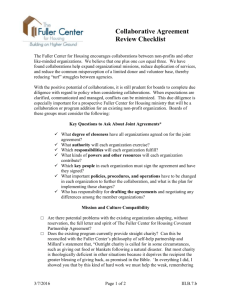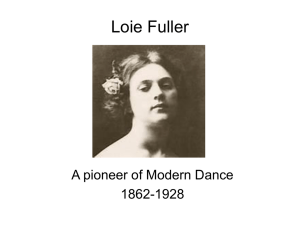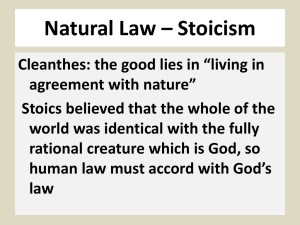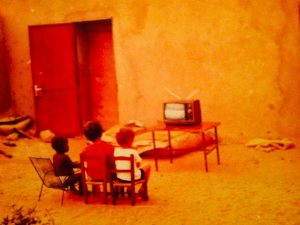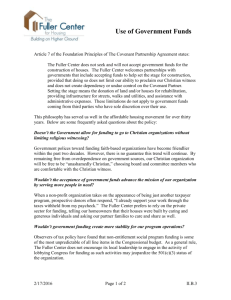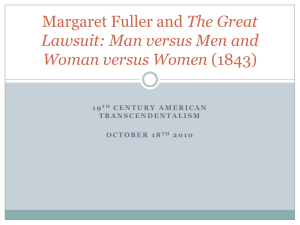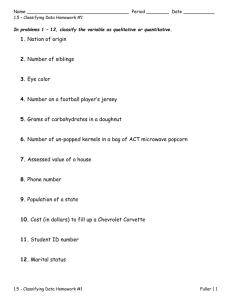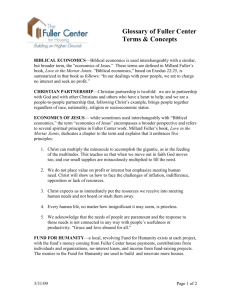Class notes October 18, 2010
advertisement
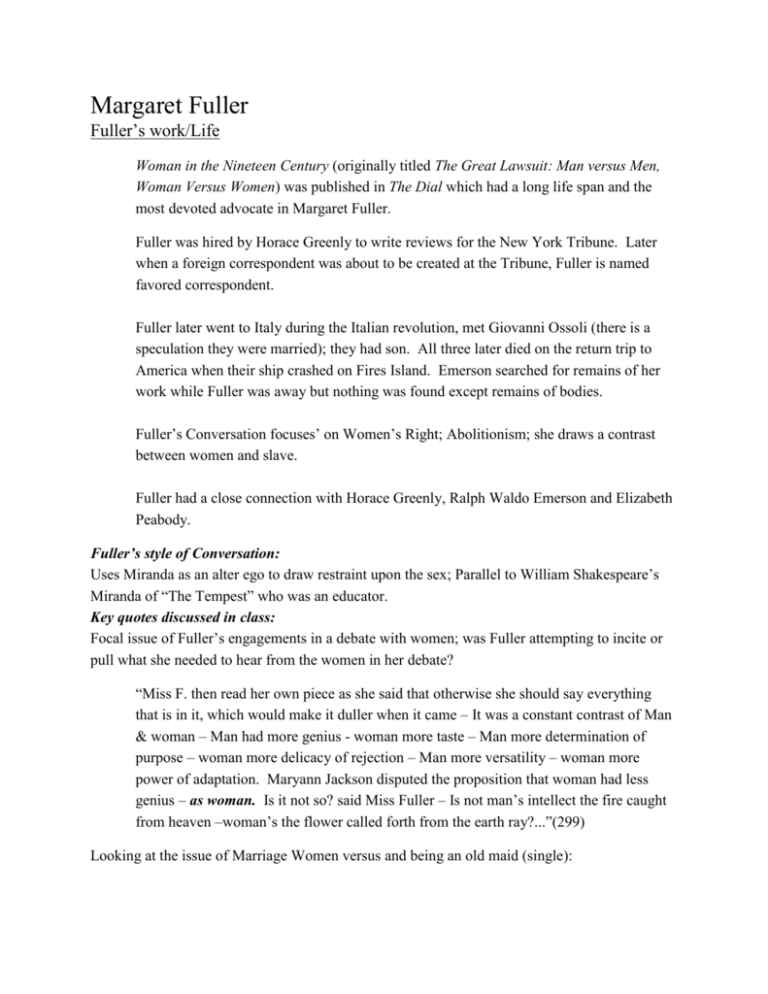
Margaret Fuller Fuller’s work/Life Woman in the Nineteen Century (originally titled The Great Lawsuit: Man versus Men, Woman Versus Women) was published in The Dial which had a long life span and the most devoted advocate in Margaret Fuller. Fuller was hired by Horace Greenly to write reviews for the New York Tribune. Later when a foreign correspondent was about to be created at the Tribune, Fuller is named favored correspondent. Fuller later went to Italy during the Italian revolution, met Giovanni Ossoli (there is a speculation they were married); they had son. All three later died on the return trip to America when their ship crashed on Fires Island. Emerson searched for remains of her work while Fuller was away but nothing was found except remains of bodies. Fuller’s Conversation focuses’ on Women’s Right; Abolitionism; she draws a contrast between women and slave. Fuller had a close connection with Horace Greenly, Ralph Waldo Emerson and Elizabeth Peabody. Fuller’s style of Conversation: Uses Miranda as an alter ego to draw restraint upon the sex; Parallel to William Shakespeare’s Miranda of “The Tempest” who was an educator. Key quotes discussed in class: Focal issue of Fuller’s engagements in a debate with women; was Fuller attempting to incite or pull what she needed to hear from the women in her debate? “Miss F. then read her own piece as she said that otherwise she should say everything that is in it, which would make it duller when it came – It was a constant contrast of Man & woman – Man had more genius - woman more taste – Man more determination of purpose – woman more delicacy of rejection – Man more versatility – woman more power of adaptation. Maryann Jackson disputed the proposition that woman had less genius – as woman. Is it not so? said Miss Fuller – Is not man’s intellect the fire caught from heaven –woman’s the flower called forth from the earth ray?...”(299) Looking at the issue of Marriage Women versus and being an old maid (single): The physical inconvenience of sculptures, architecture and even of painting were averted to – But why not music and poetry? Miss Fuller said it had troubled her to think that that there were not great composers among women. It is true that at the period of life when men gave themselves to their pursuit most women became mothers –but there were some who never married. I suggest that these too often spent the rest of their lives on mourning over this fact- & and society spoke so uniformly of a woman as more respectable for being married” (298) (THE CONSENSUS FOR THIS QUOTE AND SIMILAR QUOTES IS WHETHER FULLER IS CONCEDING?) Fuller illustrates difference between sex and gender -considered the most fiery of transcendentalists -she was unconventional and lived through her ideals -as a woman it was a lot more risky to do this Fuller also comments on why she wants to title her piece: Men vs. Men, Woman vs. Women (1843) -Sex-in terms of feminine and masculine -struggle of cultural norms men as a (social concept) vs. man as a (biological group) "Miranda"-alter ego illusion to Shakespear's Miranda (The tempest) Miranda is considered the educator of language, the learned daughter She put forth the idea that woman are the minds behind men -states that husbands seek good advice from there women behind closed doors. -She wants women to be recognized publicly Ex.: who sent Columbus to the New World? Queen Isabella Fuller: Undermined the system She is looking for followers to her discussions, not to make anyone "bleed" Fuller is still dependent on the male figure, to put her arguments in a diplomatic fashion to win the men's vote. -Does she put forth her arguments in a way to manipulate her audience? She did not want to be seen as an outcast so she spoke her argument in a way that favored both men and women. Her point was very clear. Consessions: -Men as providers Requests: -she wanted women to have equal opportunity to a broader array of jobs -equal education -right to partake in the political arena She makes the argument that the women raise the men that are the politicians. Women are educators even at home. Refer to Buell Text -pg 298 (Buell) -marriage should not be the only thing that is offered to women -pg 317-the idea of old maids
